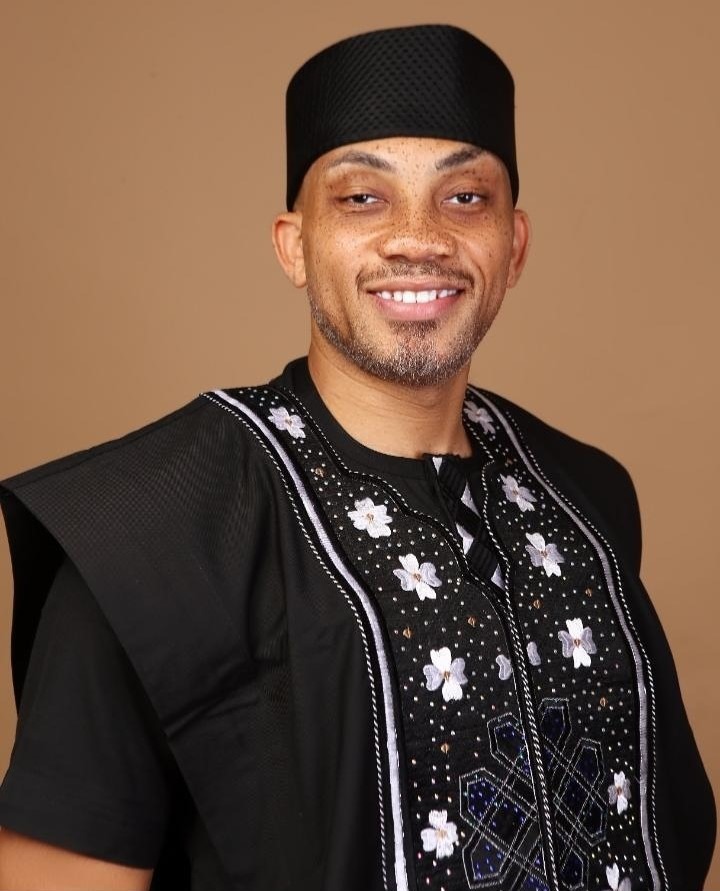
Tell us a little bit about yourself. Your growing up days.
I’m Jide Martin, the CEO of the Comic Republic. I studied at the Obafemi Awolowo University. I was born and bred in Lagos. At some point in time, you know, parents traveled a lot and of course they tagged us along. But when I was young, my mum really tried to keep us indoors. And I think for me, that’s how my comic career started. A couple of years down the line, she did try to dissuade me from going into comics but I would still accredit her for my love of comics because it all started from her not wanting us to go out. I don’t know if you remember those days of cables. You know those cables for TVs that looked like masts, like proper antennas. So she started by buying the cable TV to keep us indoors. She then discovered an Ilupeju supermarket. I think I followed her one day and I was so excited about the comic books. People who know anything about the Ilupeju supermarket will know what I’m talking about. So, when she saw that I was excited about it, she made sure it became an every Sunday thing. So, every Sunday we go out and pick up two or three comic books. And to her dismay, I would trace the characters on every single one of them. And back in those days, each comic book was N2 and fifty kobo which was a lot of money then. So, she would spend at least N5 every Sunday buying comics. So, the excitement of getting those comic books every Sunday and then tracing on all of them is actually how my art journey started. It started with me tracing to actually now drawing on my own and then really falling in love with comics. And I followed everything. Like when you mentioned titles such as Submariner, then you know that person is a real comic fan because those are characters that are not really around these days. Titles like the Peacemaker, Conan the Barbarian and the rest. So I grew up on that. And it actually really kept me indoors. I’ve always really tried to figure out how things work myself and I always did what I wanted to do. I was never big on what daddy or mummy said. I was always a stubborn child, right? I wasn’t that big on religion either, but I loved my superheroes, you know. And I will say till tomorrow that superheroes saved my life because when other kids would get excited about doing the wrong things, I actually wanted to be a hero. I was so focused about being good, being strong, being efficient and wanting to save the day. I was really trying to save people, whether it’s by talking to them or just trying to do the right thing. And I would always ask them, why are you not like this character? And they’ll be like, it’s for white people. So I grew up with that anger because I never felt it mattered whether I was white or not. It was then that it dawned on me that I needed to create icons that people that look like me could believe in, and that really governed most of my childhood.
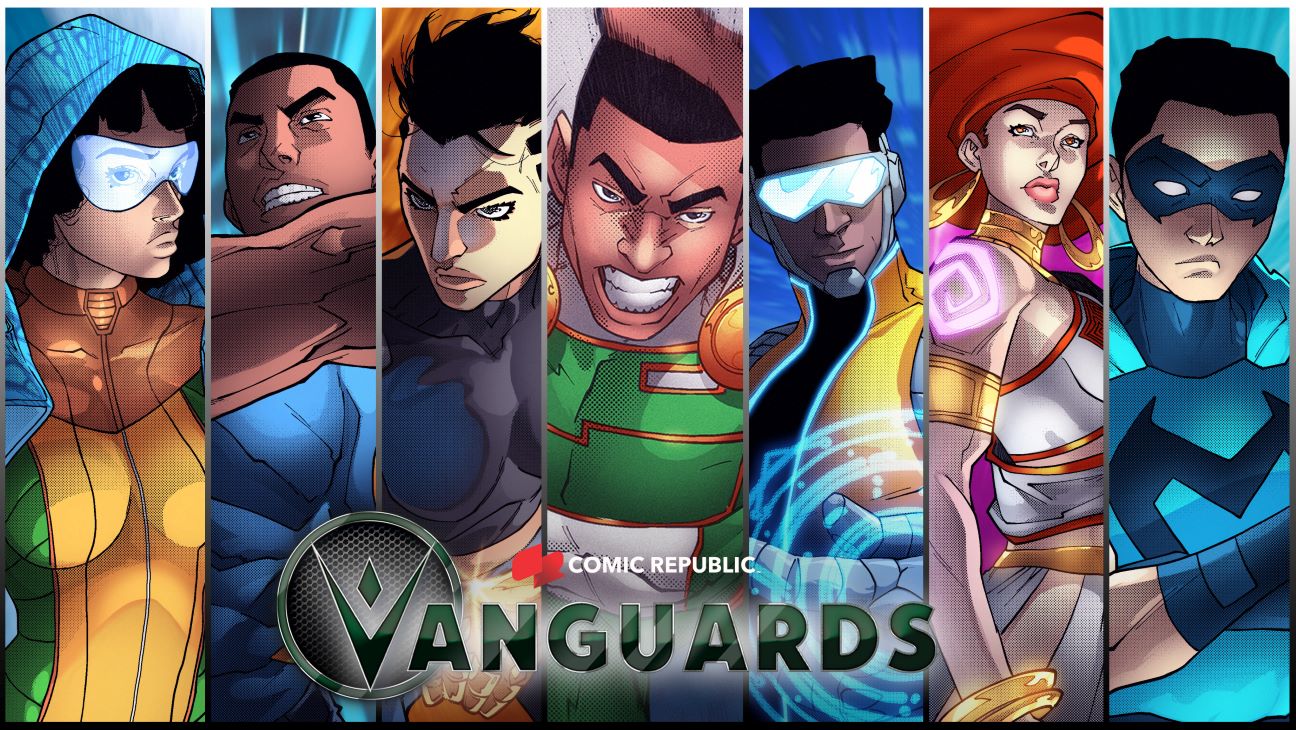
Growing up, when I entered school, I was a complete geek. Nowadays, it’s somehow cool to say you’re a geek but back then, people would laugh at you. If you were into playing games and reading comics, it would be like ‘bro’ or ‘uncle’ so because of that, I used to hide it. After every social evening at secondary school or after every party at university, I would go back to my dorm and then read a comic or draw. It was almost like keeping a secret and not letting my true self out. And I was good at keeping it a secret because everybody thought, oh that’s the cool kid. They didn’t know I was somebody who just really couldn’t wait to go and play Street Fighter and burn all my pocket money at the next arcade playing Street Fighter. I remember my mum once asking me why I was so broke just one week after returning to school? She didn’t know I’d been going to one arcade nearby to play Street Fighter. So that was it growing up for me. But also, while at the University of Ife as Obafemi Awolowo University was called then, there were so many strikes. There was a time when we were still in the same semester for one and a half years because of repeated strikes! Anyway, during one of the long breaks, I asked myself what the next mature thing was for me to do with my being a geek and decided to try fashion. I started drawing designs, since it was quite similar to drawing superhero costumes. I started drawing designs and then progressed to making it a business. I actually became a model for a fashion company briefly, and I was really there to just learn the ropes. After about three months when I felt I had learned enough, I left. The business model was a pretty simple one. You get some tailors in Obalende, you go and look for customers, you show them the clothes, you take it back to your tailor, you sit with them all night, they finish, you give the finished items back to the client, right? So after three months, I had figured that out. And then I decided to wear my palm slippers and go out every day to my mother’s dismay. She was like, ‘I sent you to school, you graduated with a law degree. Why are you selling clothes?’ But like I said earlier, I’ve always had that spirit of doing my own thing. And it was the closest and most reasonable thing to me then that was acceptable, than to start saying that I was going to start drawing comics. At least I could design and I could put my creative talent to the test. And then, at some point in time, I started seeing superheroes on TV. These were the days of Green Arrow, The Flash and other comic characters, I think by CBS. Then these shows were making a million dollars per episode. At this point in time, I had successfully grown my fashion business and had even added event management to it. And they were both doing very well. I had lots of clients in the banking sector and a couple at oil companies too. I was doing really good. Do you remember the period of the linen boom? Well, I was partly responsible for people weighing linen up and down. And then I just thought, if the world is starting to accept superheroes, there’s no better time. Of course, I had made some money from the fashion business that I was doing and that enabled me to start diverting a lot of the revenue from it to setting up a comic studio. So all my actions and steps were well thought out and very intentional. It wasn’t something that I just fell into. And because I had been running the fashion business successfully and I ran it for seven years before I started Comic Republic, I had already started learning how to run a business which was doing very, very well, to be honest. Most people thought that I would become one fashion mogul so they were shocked when I started doing comics by the side. They just didn’t get it, apart from one or two of my clients who were pretty excited. Being geeks in disguise like myself, in an effort to appear cool for society, they got it. And I think from there, I set it up. I started looking for people. Understanding the principles of running a business, I knew I couldn’t do it alone for various obvious reasons. I therefore set out to have a team. That was the very first thing I did. And then once I found a team, I could go to work in the morning, come back, and then me and my team would assemble on my dining table. We would draw till 3 or 4 am. I would go to bed for just two or three hours, get up and continue to run my fashion business in the morning. I remember we used to have a running joke that we could cut Power Horse from our bloodstreams because we were just high on energy drinks half of the time, so we could stay awake.
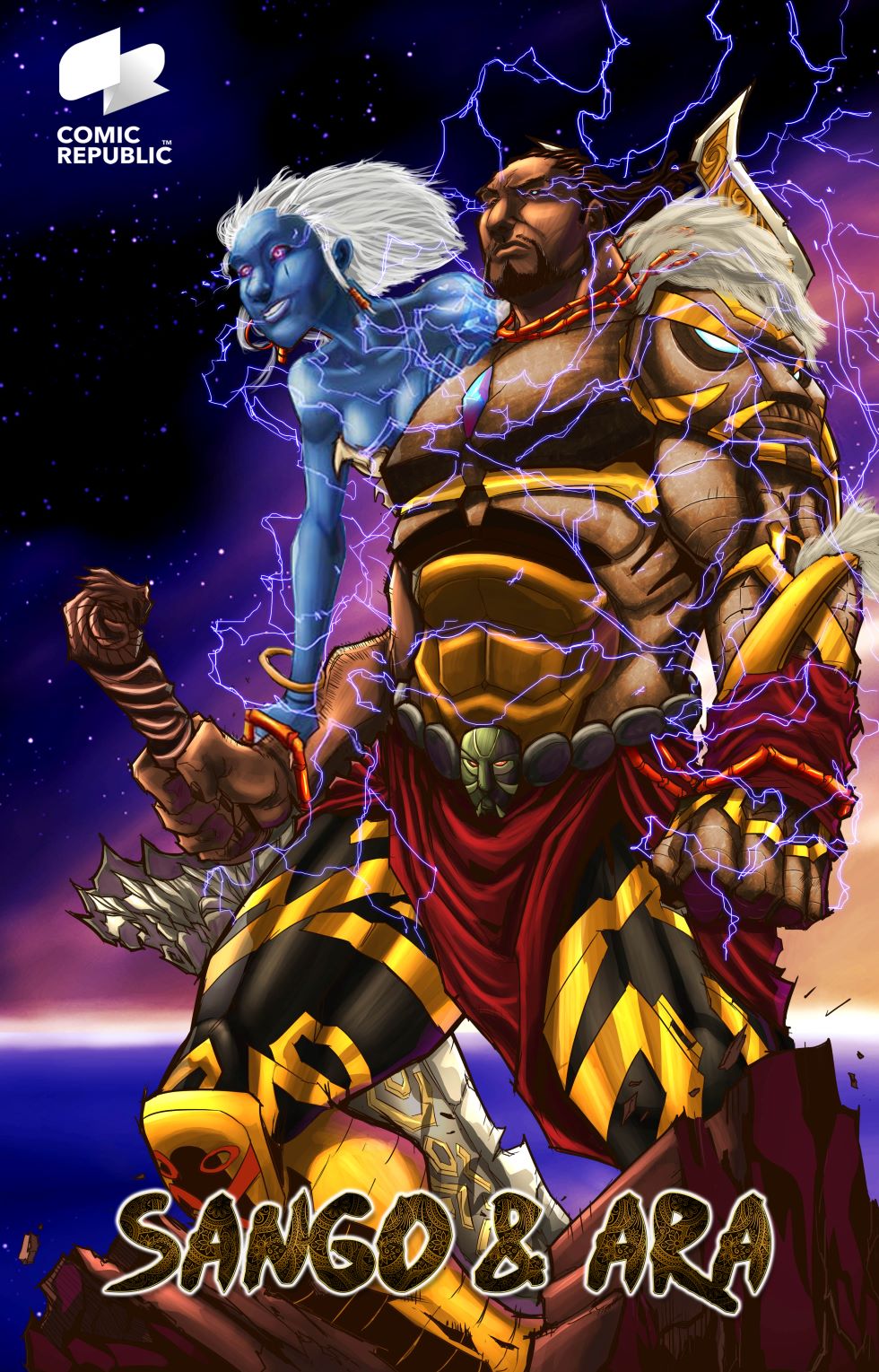
Have you always liked comics? As a child, which were your favourite comic characters?
Oh! That’s a good one. So I’m very classic. I liked the very strong guys. I didn’t mess around with the weak people so I started out with Superman and Batman. Superman and Batman were the strongest. They were the best in each field and then becoming a teenager, I was introduced to the X-Men. Yes, and somewhere in between, I used to like Conan the Barbarian. I liked his masculinity and felt he was just too cool. Though most people will not say it, the truth was that Conan had some kind of sexual element to it. He was always surrounded by beautiful women and as a guy who liked seeing beautiful women, this naturally appealed to me. But really, it was mostly Superman and Batman I would say, and then the X -Men. I really, really liked the X -Men so I think number four would be Conan while the X -Men would be third.

Africa’s challenges and indeed the world’s challenges require creative solutions. In practical terms, how do you think we can develop creative talent in schools better than we are currently doing?
I actually believe it is already happening, considering the success that the creative community is enjoying – and if you really, really look at the successful enterprises these days, that are not in the political sphere, you will find out that they are all creative, or creative inclined, if I may use that term. They are creative aligned. And so we need to start introducing it like any other subject. It’s really that simple. Schools and people in the creative sector actually need to start adding creative studies as part of the curriculum, the same way you have English, the same way you have foreign languages, the same way you have Maths. We should start having things that deal with the creative sector. And most times, when people hear about the creative sector, they think it’s just about the arts. The creative sector has more to do with your ability to think outside the box and to manifest things from nothing. That really is what the creative sector is about. A lot of the technologies that we find today, you will find that they have been expressed in creative ways in the past and this is what then triggers the people in the technological sector to start thinking about how to make these things come to pass. When you look at a lot of things that we have today, you will discover that movies, comic books and other creative endeavours like that have been talking about those things since. You know, the likes of flying cars, holographic images and other futuristic creations like that.
So it’s when something becomes visual that the mind can now explore how to make it possible. And so I feel like it should be first things first, the very basics. It should be as compulsory as Maths and English. So we can have Creative Knowledge or Creative Studies, where we start to teach the various aspects of creativity. And of course Creativity branches out into everything including innovation and even these days, user interfaces. And as we’re in a world now that is governed by AI, I would say it’s important to learn things like creative language, creative prompts, in order to manipulate it to today’s technology, in terms of creating things. I dare say that learning prompting language right now would become very lucrative in the next four to five years. Most institutions would be run by smart softwares and you would need people who know how to set in the right prompts to get the right results. And those would be based on creatives who can already visualize what it is that they are trying to achieve, and then clearly articulate it in prompts to create the future that we will have soon. So, I feel like it should just be included into our syllabus from the beginning, the same as Maths and English.
Back in the day, and even now, most African parents and teachers would frown at a child ‘wasting precious time’ doodling. But with your success, it appears as if comics are serious business. Are they?
Oh yes they are, yes they are. And I think most families don’t even understand how lucrative it is these days. Truth is that the inside gist most creative people know now is that you can’t even tie a creative person down anymore, because they have multiple clients from all around the world. First things first, creating comics is now a universal language. It’s not something that is tied down to a particular regional language. We have artists from Brazil, from different places, from China writing to us to say they want to work with us, right? We have clients from all around the world, the likes of Meta, Al-Jazeera, I can go on, top companies from different places coming out and working with us here from Nigeria. And as a businessman I can tell you that 90% of our revenue comes from outside the country. That of course translates into earning foreign exchange. So yes it is, it’s a serious business and Nigeria for example is seriously lagging behind and it’s not lagging behind but there are no opportunities in the business. It’s simply for two reasons. We don’t have sufficient professionals in it. That’s number one. And so I’m still happy about it because it allows businesses like mine to still shine…Lol. But most importantly it’s because most people do not recognize that it’s actually a business. If you ask me, we’re still focused on localised revenue. It’s almost like learning anything that has to do with computing these days where you’re creating job opportunities for yourself anywhere in the world. And so it’s the same with the business of comics. I’m also operating in a time where everything is digitalized now. Everything we interact with is a screen. What that means is that you need visuals for every single thing because screens determine that you have videos to interact with. So anything that has a user interface, which is everything these days, requires art. So yes, the business of comics is certainly lucrative.
OK, tell us a little about Comic Republic. Has it been around for some time? How did it start?
Yes, so officially we turned 10 years old last year, June last year. This year we will be 11. That’s official. But the business itself is 13 years old. So yes, we have been around for a bit. I say officially, because we incorporated three years after we started. That’s when we were like, okay, this thing is actually becoming something, let’s quickly incorporate it. And I remember that at that point in time, we were about to do something with First Bank. First Bank was about to put an advert in our comic books, and we thought, before we go on, we must first incorporate the business. And that was three years after we started. So it took us about two years to figure out how to actually make it a business, even though I had a clear plan. But in terms of actually getting the confidence. We’re a character based entertainment company. That’s what we are. Character based entertainment, media and entertainment company. And so we create characters to entertain people. But within that, I’ve brought different ways of commercialisation, especially in the case of where we do narrative storytelling for businesses. Businesses need to communicate to staff internally and to customers externally. You need to communicate new products, and even your agenda. Many people may not like that word but that is what it is, an agenda. An agenda is what you are, your purpose. And so a lot of them come to us, especially if the market is Africa, or Nigeria in particular, or black people around the world in general. Let’s say people of African origin around the world in general. And so, anytime those companies want to communicate to that set of people, they come to us. And then, we also do illustrative narration for a lot of other companies on other subjects, for example, Stanbic IBTC Bank introducing a new app and things like that. So that is one of the byproducts of us releasing comics. We publish a comic book every two weeks and we’re the only comic company from Africa that does that. We’re the largest comic publishing outfit in Africa at the moment based on our numbers. And we do full comic books that are not just strips. It’s your standard, full, minimum of 24 pages comic book. In addition, we have a collective universe of superheroes, so we don’t just publish single, single titles. It’s a collective universe like you’ll find with DC or Marvel Comics. And again, it’s only those two other companies doing that in the world. We are the next company globally that is actually creating this huge universe where all our characters are related and the stories are running at the same time. We’re presently getting about 2.5 million page views monthly and we’ve just been telling the stories of African superheroes. We say we want to put Africa’s best foot forward. So everything we do is geared towards showing the best aspects of our history, our culture, our lives. We want to show the world that we can be superheroes. We want to show the world that we can save the world. But most importantly is that we’re trying to inspire people to become icons and to be good people, no matter the color of your skin, where you’re from, or your background. It just takes the decision and the will to do good and we can actually be our brother’s keepers. But we take it from an African-centric perspective first. You’ll see that we’re Nigeria first, and then Africa, and then the world – so Africa to the world. We just recently closed a deal with Hollywood’s Universal Studios, where we are licensing our IP (Intellectual Property) to Universal to convert to TV and film. And so in about two years or less, you will start to see TV, live action TV, not animation, but shows and movies based on African superheroes, which is a thing that we’re pretty excited about.
Considering the fact that Universal Studios is one of Hollywood’s biggest movie production companies, having produced blockbusters such as Jurassic Park, the Fast and Furious franchise and the recent box office hit, Oppenheimer, your contract with them is definitely a big deal. How did it come about?
That’s a very good question. It was very intentional, very, very intentional. And I dare say it took a lot of hard work. But when it did happen, I would say that there was a lot of grace in eventually making it happen. I hear people say opportunity meets preparedness, right? Well, I can tell you that there are a lot of people who have prepared, but they still have just never got that opportunity. I actually believe it’s preparations and blessings, forget the opportunity part. Make sure you prepare and then if you’re fortunately blessed you will find the right opportunity. I think it’s the blessing that brings the opportunity. And I consider Comic Republic as being truly blessed. But we were prepared too. So, it first started with us. I remember when we posted that we had just engaged a foreign news agency to talk about Comic Republic. And I also remember sarcastic posts saying why are we wasting our money, we should focus on our local industry first and stuff like that. So, we actually engaged one or two news studios to talk about us in the foreign space. And it just took one of them to write an article and the floodgates opened. It was almost like they didn’t know we existed before then and the moment they found out that we existed, we just started getting interviewed by everybody, CNN, Al-Jazeera, New York Times, it was just crazy. And then from there, people started sending messages like, did you actually make this in Nigeria? No, tell us who the foreign artists are etc. And I’m like, no, all these creatives are from here. And then after a lot of that, we started trying to pitch the foreign studios on our own, maybe five years down the line. They all responded by saying they don’t work with companies directly. And that was the first lesson that we learned, that they work with agencies. And so we had to look for an agent in the US because that’s where Hollywood and the biggest studios are. We got one agent at first who we were not very happy with and then actively started looking for another. In the end we found CAA and I always use this CAA case as an illustration to tell people that if something crosses your mind, don’t say it’s too much or that it’s impossible, just try. What’s the worst that will happen, you get a no. So then we reached out to CAA which represents the biggest companies in the US. It doesn’t get bigger than CAA. We went to them and said, hey guys, we would like you to be our agent. We wrote and felt, at least we’ve done our part. They probably will not reply but we’ve done our part. And then we received an email, asking for a meeting. And that began a two year journey to signing them up as our agent. Two years of back and forth, contract negotiations and stuff like that. It was extremely grueling because they don’t represent just anybody. They are very, very strict with their criteria and everything, because again, they represent the biggest studios in the U .S, the biggest actors and the biggest actresses. If you Google them, you’ll be shocked. They are always in one lawsuit or the other because of the big celebrities they represent. And so after two years of them making us run and jump through hoops in order to meet their stringent criteria, we were eventually able to sign them up as our agent. And because they are so big in the industry, everybody comes to them. For example, the Universal, the Netflix, you know, the Paramount, they all come to CAA to ask what the next big thing is that they can introduce to them. And we were already CAA’s clients. So they kind of match clients with clients and are always looking for stuff to package. The next question is, is your stuff worth packaging and will our audience be interested? Now, that’s why I said we were prepared. We were just ticking off all the boxes. They were blown away. That’s why they even engaged us in the first place. Like, this is from Africa? What’s going on? So we were ticking a lot of boxes and then they introduced us to one client after the other. It was an amazing experience. Most people would say it was a difficult experience, but for us it was actually amazing, because we had to meet up with international standards in terms of quality and delivery and the way we do business. And they held our hands through it. So do it this way, do it that way, do this presentation this way, do the speech deck this way. You have to wait, don’t reach out. They would vet our emails and stuff like that. So it was an eye opening experience. I believe as a business, we got a lot better having CAA as our agent and remaining with us until we eventually signed with Universal. And once we started negotiations with Universal, because we had CAA in front, they also recommended a US IP lawyer to us who we brought under our payroll, who handled our IP in the Universal agreement and we were able to finally close the Universal Studios deal. One thing that I would like to add is that I like doing stuff on the edge. I think my being stubborn played a crucial role in our negotiations with these people because they had certain terms which they said even their US companies and other clients around the world would agree to, but I said No. For example, things like, your bank must be domiciled in the US or your company must be registered in the US, but I was like, no, that’s the whole point of what I’m doing. The whole point of what I’m doing is to build capacity in Nigeria and so I am not going to register my company in the UK or in the US. I’m not opening a bank account in the US. Instead, you’re going to pay into that Nigerian bank account. There were things like that, where I insisted that it had to be Nigeria and Nigeria only. And they would accuse us of not being serious, telling us to come back when we’re ready to play ball but I refused to budge because for me, from day one, it was very, very important to me to build capacity here. As far as I was concerned, that was the problem. I hated the fact that I had to jump through hoops to sign up with an American agency, but the truth was that we didn’t have that capacity, hence the gruelling process was necessary. But right now, I am happy that I signed up with them because we are a lot better. I would give them their flowers, but that’s the whole point. We can’t learn if we’re not allowed to grow. And so beyond that, I would say it’s about us appreciating and cherishing what we have, but most importantly, defending it. I keep hearing a lot of people saying, let’s push African culture. Let’s push this, let’s push that. But at the first sign of money on the table, we give it all away. When we were negotiating with Universal, one of the things I said was that I was not going to sell the IP because at the end of the day, it’s important that Nigerians own it. To me, that’s the bottom line. And so what I was going to do was to license it. That way, money has to come back to us. That’s the eventual bottom line, the ownership. And that’s another thing many of us don’t get. We quickly give out everything for cash on the table. But that is not sustainable in the long run. The people who are buying up these things are the ones that own it and will continually make money from it. And like everything else, you should actually be planning more long term than short term. So for us, it was, no, we’re just going to license it to you. We need to have the rights to it. Go and make as much money as you want with it, while we’re also making money with you. When you’re done, return it back to us and it’s still ours at the end of the day. So that was crucial also in negotiating the deal with Universal. Again, this is why I say we were blessed because somehow they agreed. Still don’t know why, but they did. And we are where we are today.
Praise God, because like you said, one could easily have given it all away. I mean, when people start throwing money on the table or throwing money in your face, there’s a big chance that one would just grab it. Especially when one is dealing with these big American corporations or big American studios, there is a tendency for Africans to feel, maybe not inferior, but smaller than them, and to take whatever it is that they are ready to give. So I really give it to you that you stood your ground. Truth is that not many people would do that. But by doing that, you’ve actually now opened the way for others. So you must be commended for that.
What advice do you have for parents of school children who discover that creating comics, the arts and the creative space is where their talent lies? Because like you said, African parents still have a way to go in accepting this.
So, I think I’ll start with this. I understand where parents are coming from because it’s not easy for you to be a guardian and not to want to guide the direction of your children. But I would say that in today’s world there are multiple opportunities in various fields which keep evolving – for example, the richest people in the world today are not doctors or lawyers, they are people who are into innovation science in different fields. Elon Musk and people like that. I would say that when you see that your child has a passion, allow and support them to develop that passion while you also support them in terms of learning various skills at the same time. We are now in a world where you cannot be a master of just one thing but multiple things, because the world is becoming increasingly complex and dynamic, and the range of services that can be rendered these days are always increasing. So I would say that in the creative space or in any other space, when you find out that your child has a particular passion, you should zone into that passion and help them develop it while you’re also assisting them in developing various other skills; but ensuring that their passion takes priority. I would say that that would be my advice to parents.
Do you have any regrets at all about abandoning Law, the more conventional career path, and which is what you read at university?
Looking at my colleagues and peers, none, none whatsoever. I think it’s a blessing that I abandoned Law.
I think that was a very obvious answer really, considering everything you have said during the course of the interview. Thank you once again.
______________
Jide Martin is the founder of Africa’s first digital comic book company: Comic Republic. He is an illustrator, designer, producer and entrepreneur with a passion for shaping Africa’s narrative through compelling stories and art. Born in Lagos, Nigeria, his desire to showcase the beauty of African art led to the creation of the largest comic book company in Africa, and the only company to distribute weekly comics at no cost to consumers raking in over 100,000 monthly downloads on www.thecomicrepublic.com. His books have received critical acclaim on 5 continents with features on CNN, Forbes, BBC, Comixology, Aljazeera for the quality of the art and content produced and the potential that the Comic Republic universe presents. In 2017, his company became the first and only African Comic Book Brand to attract funding from investors and a first of its kind licensing partnership that produced over 2 million school notebooks with stories about African heroes. In 2020, his company also became the first and only African Comic Book Brand to create the world’s first crypto comic which has raised over $200K in funding. Jide is a Law graduate of Obafemi Awolowo University, Ife and the Creative Enterprise Programme for Entrepreneurs facilitated by the British Council and University of Edinburgh, a TEDx Speaker, named an African change maker by the UNICEF and was nominated in 2017 by MIPAD 100, a list of the Most Influential People of African Descent under the age of 40, an initiative in support of the United Nations’ International Decade for People of African Descent. He is passionate about showcasing African art and has hosted lots of workshops and comic book conventions in Nigeria, Kinshasa and Germany aimed at developing young artists to enhance their skills and prepare themselves to tell African stories through art. Company Profile Comic Republic is a character-based media and entertainment company that produces digital comic books, 3D renditions, illustrations, games, content and animations. Based in Lagos, Nigeria, Comic Republic is the largest comic book publisher in Africa’s largest economy. They are Africa’s first digital comic book company and the only ones currently distributing weekly comic books to over a hundred thousand readers at no cost to such readers. At a time when Africa’s voice needs to be heard and when the world is demanding true African narratives, Comic Republic is sharing our stories, shaping new legends and answering that demand. They have created an authentic African universe, teeming with heroes and villains, hope and fear, stories for the young and the old, drawn both from Africa’s history and myths, and their vision of Africa’s bright future and have delivered this digitally and globally. Their works have received unsolicited critical acclaim on five continents with features on CNN, Forbes, BBC, Mashable, Aljazeera all speaking to the quality of the art and content produced from Comic Republic as well as the potential for the company to revolutionise the way content from Africa is consumed. In 2017, Comic Republic became the first and only African Comic Book Brand to attract funding from investors and a first of its kind licensing partnership that saw over forty-two million school notebooks with stories about African heroes in the hands of school children in Africa. They have gone on to work with NGOs and various companies to produce content to drive desired attitudinal changes. In 2020, they became the first company to produce the world’s first crypto comic book and to launch a universe of over 100 African characters digitally. You can learn more about them and access their free content @ www.thecomicrepublic.com




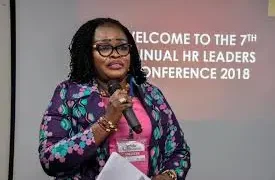
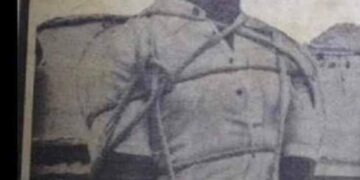





























































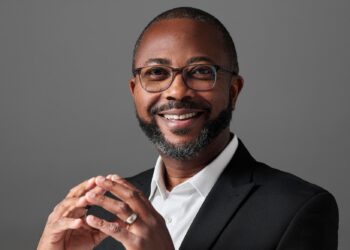

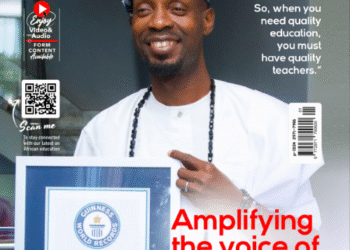












 EduTimes Africa, a product of Education Times Africa, is a magazine publication that aims to lend its support to close the yawning gap in Africa's educational development.
EduTimes Africa, a product of Education Times Africa, is a magazine publication that aims to lend its support to close the yawning gap in Africa's educational development.